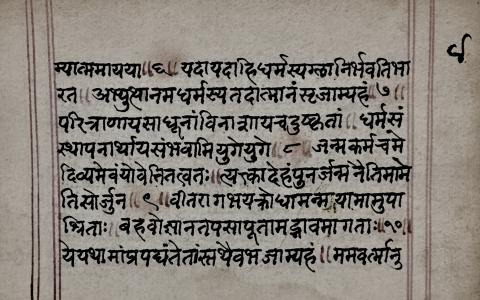
BHĪṢMA-PARVA
नारायणं नमस्कृत्य
नरञ्चैव नरोत्तमम् ।
देवीं सरस्वतीं व्यासं
ततो जयमुदीरयेत् ॥
Having saluted Nārāyaṇa,
the human and the divine;
Sarasvatī; and Vyāsa –
May Jayabe hailed!
As the army prepared itself for battle, Duryodhana called for Duśśāsana and told him, “Duśśāsana! Prepare the mighty warriors and the army for the protection of Bhīṣma. The great task that lies ahead of us is the defence of Bhīṣma; there is no...
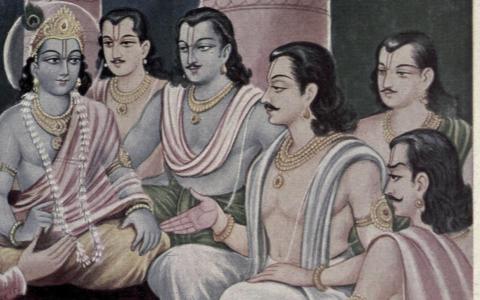
Kṛṣṇa reached Upaplavya, met the Pāṇḍavas and narrated everything that transpired in Hastināpura. He finished by saying these words – “Though Bhīṣma, Droṇa, Vidura, Gāndhārī, Dhṛtarāṣṭra, and others tried to counsel Duryodhana, he refused to listen. He never changed his mind. He only got enraged, his eyes turned red and he left the court without caring for anyone. He was followed by the kings who had taken shelter under him. He commanded them...
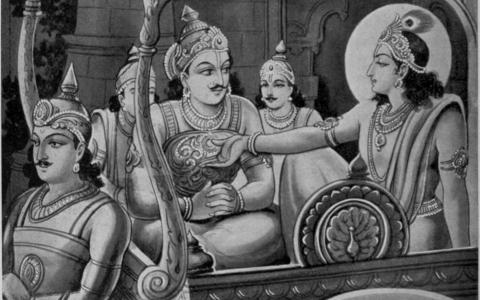
Kṛṣṇa paid his salutations to Kuntī and informed her of everything that transpired in the Kuru court. “I’ll take leave of you, dear aunt. I need to get back to the Pāṇḍavas as soon as possible. What shall I tell them?” he asked her.
Kuntī communicated her advice to her children through Kṛṣṇa – “Tell Dharmarāja that he should never give up the kṣatriya-dharma. The path you are treading upon currently is not something that your forefathers took to...
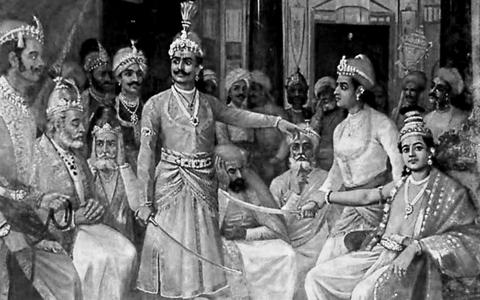
As he heard Kṛṣṇa’s words, Duryodhana turned towards him and snapped. “Kṛṣṇa! You should think about this once more thoroughly and then speak to us. You have criticised me too much in your speech. Everyone seems to be upset with me – you, Vidura, father, grandfather, ācārya, and everyone else. I fail to figure out what my mistake is, in whatever has transpired so far. The Pāṇḍavas came forward to gamble on their own accord because they love the...
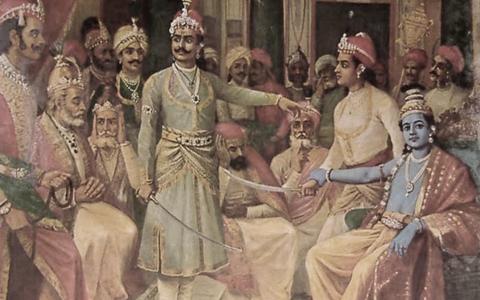
The next morning, Kṛṣṇa woke up and got ready to leave. Duryodhana and Śakuni came to Vidura’s house and informed Kṛṣṇa that Dhṛtarāṣṭra had arrived at the royal court and was looking forward to his arrival. Kṛṣṇa and Vidura left for the court in a chariot. They were followed by Duryodhana, Śakuni, Sātyakī, Kṛtavarma, and the others. Kṛṣṇa’s chariot was followed by warriors wearing strange clothes carrying war weapons. The entourage also...
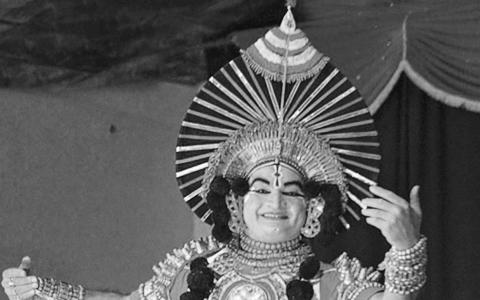
The next day, Kṛṣṇa left from Vṛkasthaḻa and headed towards Hastināpura. Bhīṣma, Droṇa and other older Kauravas received him on the way. The entire city was decorated. The path was filled with hordes of people and the crowd slowed down Kṛṣṇa’s horse. A large number of people had gathered on rooftops and it seemed as though the buildings would collapse because of their weight! Kṛṣṇa visited Dhṛtarāṣṭra at his palace, paid his respect to the King...
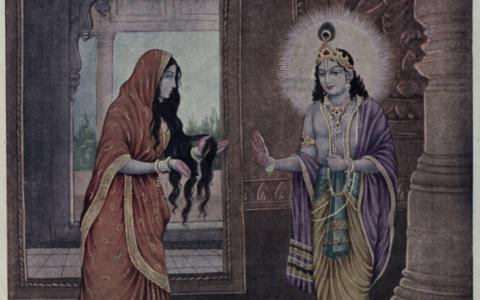
Draupadī was pained listening to the coward speech of Dharmarāja, to which he had given a dhārmic garb. She was also annoyed looking at Bhīma who seemed to have lost his vigour. Fortunately, however, Sahadeva’s words gave her some solace. With tears in her eyes, she pleaded with Kṛṣṇa, “Janārdana! If the Kauravas refuse giving us our share of the land and try to strike a compromise, please don’t accept it. They are not worthy of our compassion....
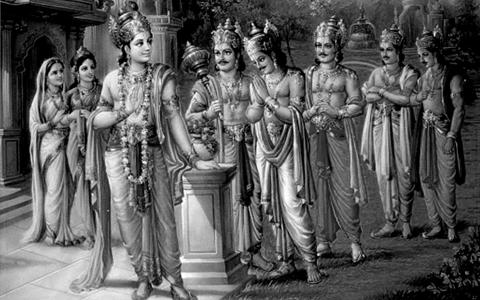
Bhīmasena said, “I suggest you speak to the Kauravas and try to ensure peace between us. Don’t scare them with the prospect of a war even as you start speaking! Let us try to bring things under control using the path of sāma, i.e. reconciliation through peaceful means. Don’t get agitated with them. Duryodhana is a greedy person and is full of malice. He is adamant and will not give up his stance even if he has to give up his life. It's...
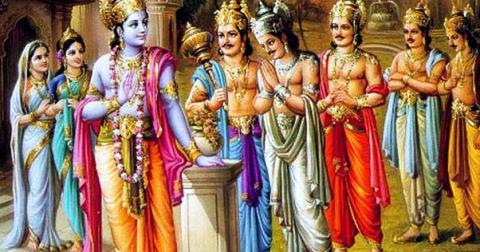
The night was spent in their conversation. The next morning the Kauravas and their nobles assembled in the king’s court, curious to hear the message Sañjaya had brought for them. Bhīṣma, Drona and the other elders entered the court along with Dhṛtarāṣṭra, while Karṇa and Śakuni accompanied Duryodhana. Sañjaya entered the court, sought the permission of Dhṛtarāṣṭra and narrated all that transpired when he met Yudhiṣṭhira and Śrīkṛṣṇa. He made...
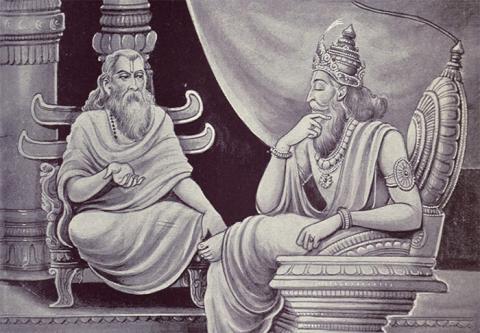
Vidura first elucidated upon the qualities of a scholar and the differences between the wise and the foolish. A wise man always does what is good for himself and to the society. He gives up condemnable activities. He is devoted to his work and lives a disciplined life. He sacrifices not basic human values and the puruṣārthas at the cost of anger, joy, shame, arrogance, ego, or obstinacy. None can understand the depth of his personality and his...
